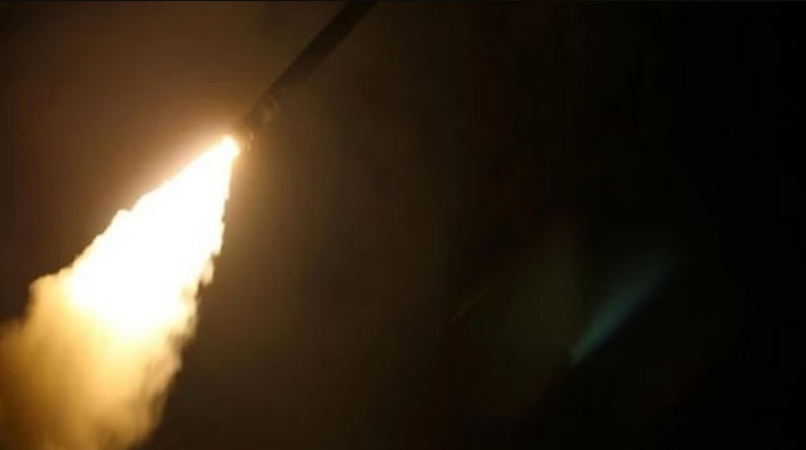
Seoul: According to South Korea, North Korea launched what could have been a brand-new ballistic missile on Thursday, giving residents of northern Japan cause for concern but ultimately posing no threat.
According to South Korea's military, the missile travelled about 1,000 kilometres and was a "grave provocation."
Although the apogee, or maximum altitude, of the missiles has not been publicly revealed, South Korea's Yonhap news agency reported that it appeared to have been less than 3,000km, which is much lower than the height of some tests conducted last year, which exceeded 6,000km.
The South Korean military asserted that it was on high alert and closely coordinating with its main ally, the United States, which "strongly condemned" what it described as a long-range ballistic missile test in a statement from the White House.
Also Read: London police issue a warning to the public not to approach a "violent" fugitive
According to a military official from South Korea, the test reportedly involved a brand-new weapon system that was recently displayed at a military parade in North Korea.
The defence ministry speculated that the projectile may have been a solid-fuel missile while the military investigated its trajectory and range.
More solid-fuel missiles are being built by North Korea because they are simpler to transport and store and can be launched with little to no advance notice or planning.
Also Read: In progress evacuations as a tropical cyclone approaches Australia
Bruce Bennett, a senior defence analyst at the US-based RAND Corporation, noted that while North Korea has tested short-range solid-fuel missiles, it has not done so with a long-range version.
According to South Korea's Joint Chiefs of Staff, the missile was launched from a location close to Pyongyang at 7:23 a.m. (22:23 GMT on Wednesday), which suggests it may have originated from a major location for large missile test launches since 2017.
The missile appeared to have been fired eastward at a high angle, and it did not land in Japanese territory, according to Japan's defence minister, Yasukazu Hamada, who prompted the Japanese prime minister Fumio Kishida to call a meeting of the National Security Council.
The projectile, according to Japan's coast guard, was lost in the sea to North Korea's east. When asked if the missile had flown over Japan's exclusive economic zone, Hamada said he was unable to confirm.
As soon as it became clear that the missile would not strike in the area, Japanese authorities cancelled the alert for Hokkaido island.
The alert there caused a brief state of panic at a train station, a student there told Japanese broadcaster NHK.
During a brief period of panic, the unnamed man told NHK, "but a station worker said to calm down, and people did.
Days prior to the launch, North Korean leader Kim Jong Un called for bolstering war deterrence in a "more practical and offensive" manner to counter what North Korea viewed as American aggression.
The United States reiterated its offer to start negotiations while condemning the most recent of a series of North Korean missile tests.
Also Read: ASEAN strongly condemns the deadly airstrike that occurred in Myanmar
According to US National Security Council spokesperson Adrienne Watson, "the door has not closed on diplomacy, but Pyongyang must immediately cease its destabilising actions and instead choose diplomatic engagement."
North Korea, which has increased its weapons tests in recent months, has criticised recent joint military drills between US and South Korean forces as escalating tensions.